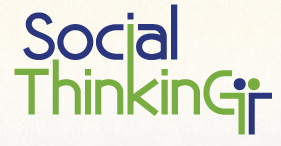Social Thinking Conferences in Long Beach and San Diego – Three Quick Takeaways
I recently had the pleasure of attending Michelle Garcia Winner’s Social Thinking Conference in San Diego. And the week before, I attended the Social Thinking conference in Long Beach. Because the conferences were held so close geographically and only a week apart, the content was different, which I really appreciated.
 Michelle’s Social Thinking conferences are designed for both professionals and parents. These conferences are helpful for anyone working with students and adults who are experiencing social and communication problems (high-functioning autism, Asperger’s, ADHD, nonverbal learning disorders or no diagnosis). The conferences are known to be both enlightening and practical, blending scientifically-based research, theories based on clinical practice, tested teaching strategies, clinical examples and humor.
Michelle’s Social Thinking conferences are designed for both professionals and parents. These conferences are helpful for anyone working with students and adults who are experiencing social and communication problems (high-functioning autism, Asperger’s, ADHD, nonverbal learning disorders or no diagnosis). The conferences are known to be both enlightening and practical, blending scientifically-based research, theories based on clinical practice, tested teaching strategies, clinical examples and humor.
I think the Social Thinking curriculum is one of the most useful tools available to professionals working with children who have social disorders, and I strongly encourage other professionals, as well as parents, to take a look if you aren’t already familiar. It will be worth your time. There are more Social Thinking Conferences happening this year across the country and you can check to see if there will be one near you on their conference schedule.
Here are three quick takeaways from the most recent conference:
- I love the focus on helping to teach children that you can change the thoughts that others have about you. It’s an important and empowering message.
- It’s important to help children understand that when you run into an issue, you need to match the size of your reaction to the size of the problem. This is a concept that has worked really well for us in our pragmatic-language focused social skills groups at Scheflen Speech-Language Pathology.
- Because I think the Social Thinking curriculum is excellent, I was happy to note how many times our new Behaviors with Friends iPad app meshes with the curriculum – many great examples in the app of “Rock Brain” moments, expected vs. unexpected behavior, and “Mean Jean” behavior, to name just a few.

